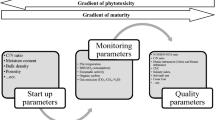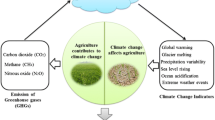Abstract
Although traditional societies often have a deep understanding of ecological relationships, traditional or religious values might be in conflict with current environmental values. According to Islamic Law, some compost sources used for agricultural purposes are impure, especially human and pig excreta. This study examined how Muslim farmers perceive the issue of impurity of compost sources and the extent to which the conflict between traditional and modern values affects compost use. Questionnaires were distributed to 77 Muslim and 11 Christian farmers in Israel, examining their personal characteristics, attitudes toward compost use, awareness of its sources and advantages, and the influence of traditional perceptions on the tendency to use compost. Interviews were conducted with agricultural consultants and Muslim clergy. Although the use of compost was limited, a higher level of awareness was found among the younger and/or more educated Muslim farmers. Varied attitudes were expressed regarding the degree of purity/impurity; 52 % of the respondents expressed willingness to use compost if derived from pure materials. The agricultural consultants were acquainted with Muslim farmers who recoiled from the use of compost. The Muslim religious leaders stated that impure substances can be purified through biochemical reactions during the composting process and noted that the use of compost is preferable if chemical fertilizers are harmful to the environment. Although Muslim farmers expressed willingness to use compost if it was proved to be pure according to Islam, this paper addresses how, in practical terms, universal environmental policies may give rise to value conflicts in traditional communities.
Similar content being viewed by others
Notes
Cronbach’s alpha is a measure of internal consistency, namely how closely related a set of items are as a group. A high value of Cronbach’s alpha may be used as evidence that the items measure an underlying construct. In fact, it is a common coefficient of reliability (or consistency). For more details see: SPSS FAQ, http://www.ats.ucla.edu/stat/spss/faq/alpha.html.
Muslims may be classified according to their level of knowledge and degree of adherence to religious precepts. The basic religion is based on The Five Pillars: (1) The Shahada (Islamic creed), (2) As-Salah (daily prayer), (3) Zakat—a certain percentage is taken from every kind of property to be given out to the poor, (4) As-Siyam, the fast of Ramadan, (5) The Hajj—The pilgrimage to Mecca. The religiously sanctioned position depends on the educated class of Muslim legal scholars engaged in the several fields of Islamic studies. In a broader sense, the term Ulema is used to describe the body of Muslim clergy who have completed several years of training and the study of Islamic sciences. The Islamic clergy lead the community in several ways: for example, they lead public prayers in mosques, deliver sermons or act as judges in Sharia courts (Weiss 2002 and Khamaisi, personal communication, 2012). In the current study, the three religious leaders interviewed were Muslim clergy. Please refer to Sect. 3.1 for details about the respondents to the questionnaires.
Technocracy—a system of governance in which technically trained experts rule by virtue of their specialized knowledge and position in dominant political and economic institutions (Fischer 1990).
References
Alkaradawy, Y. (2006). Purification jurisprudence (pp. 87–89, 255). Cairo: Wahbe publishing house. (Arabic).
Alshafeey, M. (1990). “Alom”, About the Shafeeiah School (pp. 111–112). Lebanon: Dar Alfeker. (Arabic).
Anderson, E. N. (1996). Ecologies of the heart: Emotion, belief and the environment. New York: Oxford University Press.
Annabi, M., Houot, S., Francou, C., Poitrenaud, M., & LeBissonnais, Y. (2007). Soil aggregate stability improvement with urban composts of different maturities. Soil Science Society of America Journal, 71, 413–423.
Annajar, A. (1999). Environmental issues from an Islamic perspective. Qatar: Research and Studies Center. (Arabic).
Atran, S. (1993). Itza Maya tropical agro-forestry. Current Anthropology, 34, 633–689.
Avnimelech, Y. (1997). Land application of composted municipal wastes. In P. N. Chremisinoff (Ed.), Ecological issues and environmental impact assessment (pp. 551–570)., Advances in environmental control technology Houston, TX: Gulf Publishing Company.
Ayalon, O., Avnimelech, Y., & Shechter, M. (2000). Alternative MSW treatment options to reduce global greenhouse gases emissions: The Israeli example. Waste Management and Research, 18, 538–544.
Ayoob, H. (2002). The worship jurisprudence (pp. 25–50). Cairo: Dar a Slam. (Arabic).
Beeman, R. S., & Pritchard, J. A. (2001). A green and permanent Land: Ecology and agriculture in the twentieth century. Lawrence: University Press of Kansas.
Berkes, F., Colding, J., & Folke, C. (2000). Rediscovery of traditional ecological knowledge as adaptive management. Ecological Applications, 10(5), 1251–1262.
Berkes, F., Kislalioglu, M., Folke, C., & Gadgil, M. (1998). Exploring the basical ecological unit: Ecosystem-like concepts in traditional societies. Ecosystems, 1, 409–415.
Descola, P., & Pálsson, G. (1996). Introduction. In P. Descola & G. Pálsson (Eds.), Nature and society—Anthropological perspective (pp. 1–21). London: Routledge.
Ellis, S. C. (2005). Meaningful consideration? A review of traditional knowledge in environmental decision making. Arctic, 58(1), 66–77.
Epstein, E. (1997). The science of composting. Technomic: Lancaster.
Fischer, F. (1990). Technocracy and the politics of expertise. Newbury Park: Sage Publications.
Foltz, R. C. (2003). Islamic environmentalism: A matter of interpretation. In C. R. Foltz, F. M. Denny, & A. Baharuddin (Eds.), Islam and ecology (pp. 249–279). Boston: Harvard University Press.
Foltz, R. C. (2006). Islam. In R. S. Gottlieb (Ed.), The oxford handbook of religion and ecology (pp. 207–219). New York: Oxford University Press.
Haila, Y. (2000). Beyond the nature-culture dualism. Biology and Philosophy, 15, 155–175.
Halamish, N., Tal, A., Ben-Nun, G., Chen, Y., Hadar, Y., Chefetz, B., et al. (2000). Compost in Israel: Survey of sources and uses and a general analysis (pp. 1–29, 57–61, 99–100). Israel Ministry of the Environment and Ministry of Agriculture (Hebrew).
He, Y., Inamori, Y., Mizuochi, M., Kong, H., Iwami, N., & Sun, T. (2001). Nitrous oxide emissions from aerated composting of organic waste. Environmental Science and Technology, 35(11), 2347–2351.
Hijab, M. (2002). Pollution and Environmental Protection (pp. 11–31). Egypt: Dar Alphajer. (Arabic).
Hopkins, N. S., Sohair, R. M., & Salah, E. H. (2001). People and pollution: Cultural constructions and social action in Egypt. Cairo: American University in Cairo Press.
Huntington, H. P. (1998). Observations on the utility of the semi-directed interview for documenting traditional ecological knowledge. Arctic, 51(3), 237–242.
Ibn Taymiyah, A. (1268–1328), In A. Hanbali (Ed.) (1997). The great legal Opinions, 21, 542–560, 578–587. (Arabic).
Israel Ministry of Agriculture and Rural Development. Green agriculture: The use of compost. http://www.moag.gov.il/agri/subject/green_agri/shimush+bekompost.htm. Accessed 4 December 2011 (Hebrew).
Israeli Central Bureau of Statistics. (2008). Employed persons and employees, by industry, population groups and sex. Table # 2.1. Jerusalem.
Israeli Central Bureau of Statistics. (2011). Statistical Abstract of Israel, no. 62, Jerusalem.
Kamla, R., Gallhofer, S., & Haslam, J. (2006). Islam, nature and accounting: Islamic principles and the notion of accounting for the environment. Accounting Forum, 30, 245–265.
Kan, I., Ayalon, O., & Federman, R. (2010). On the efficiency of composting organic wastes. Agricultural Economics, 41, 151–153.
Khalid, F. M. (2002). Islam and the environment. In P. Timmerman (Ed.), Social and economic dimensions of global environmental change (Vol. 5, pp 332–339). In T. Munn (Ed. In Chief), Encyclopedia of Global Environmental Change. Chichester: Wiley.
Khamaisi, R. (2007). Between customs and laws: Land planning and management in Arab communities in Israel. Jerusalem: Florsheimer Institute for Policy Research. (Hebrew).
Kliot, N., & Hophmayer-Tokich, S. (2003). Environment pollution by waste water—Aspects of environmental justice. Jerusalem: The National Council for Environmental Quality, The Jerusalem Institute. (Hebrew).
Manzoor, S. P. (1984). Environment and values: The Islamic Perspective. In Z. Sardar (Ed.), The touch of Midas: Science, values and environment in Islam and the West (pp. 150–169). UK: Manchester University Press.
Namarne, A (2007). Status report of environmental living conditions in the Arab sector. In C. Lubnov (Ed.), Report on environmental (in) justice for 2007, Life and Environment (pp. 93–97). The Israeli Union of Environmental NGOs, Tel Aviv. (Hebrew).
Nawab, B., Ingrid, L. P., Nyborg, I. L. P., Esser, K. B., & Jenssen, P. D. (2006). Cultural preferences in designing ecological sanitation systems in North West Frontier Province, Pakistan. Journal of Environmental Psychology, 26(3), 236–246.
Nunnaly, J. (1978). Psychometric theory. New York: McGraw-Hill.
Özdemir, İ. (2003). Toward an understanding of environmental ethics from a Qur’anic perspective. In C. R. Foltz, F. M. Denny, & A. Baharuddin (Eds.), Islam and ecology (pp. 3–37). Boston: Harvard University Press.
Peters, S. J. (2002). Rousing the people on the land: The roots of the educational organizing tradition in extension work. Journal of Extension, 40(3), 3FEA1.
Rahmani, M., Hodges, A., & Kiker, C. (1999). Analyzing compost economics. Biocycle, 40(7), 66–69.
Rubin, U. (2005). The Quran. Tel Aviv: Tel Aviv University.
Sabbah, I., Marzook, T., & Basheer, S. (2004). The effect of pretreatment on anaerobic activity of olive mill wastewater using batch and continuous systems. Process Biochemistry, 39(12), 1947–1951.
Santos J. R. A. (1999). Cronbach’s Alpha: A Tool for Assessing the Reliability of Scales. Journal of Extension, 37(2), Tools of the Trade, 2TOT3.
Shmueli, D. (2005). Is Israel ready for participatory planning? Expectations and obstacles. Planning Theory and Practice, 6, 485–514.
Shmueli, D. (2008). Environmental justice in the Israeli context. Environment and Planning A, 40, 2384–2401.
Slimak, M. W., & Dietz, T. (2006). Personal values, beliefs, and ecological risk perception. Risk Analysis, 26(6), 1689–1705.
SPSS FAQ - What does Cronbach's alpha mean? Institute for Digital Research and Education, UCLA. http://www.ats.ucla.edu/stat/spss/faq/alpha.html. Accessed 3 Sept 2012.
Stewart, B. A., Robinson, C. A., & Parker, D. B. (2000). Examples and Case Studies of Beneficial Reuse of Beef Cattle By-products, In: Dick, W. A. (Ed.). Land application of agricultural, industrial, and municipal byproducts (pp. 387–407). Soil Science Society of America.
Tarabeih, H. (2008). Environmental conflict management and resolution in split societies with a view to creating a culturally tailored model: Analyzing the case of conflicts in the Galilee (Doctoral dissertation). University of Haifa, Israel. (Hebrew).
Unsal, T., & Ok, S. S. (2001). Description of characteristics of humic substances from different waste materials. Bioresource Technology, 78(3), 239–242.
Weiss, Bernard. G. (2002). Studies in Islamic legal theory. Boston: Brill Academic publishers.
White, A. T. (1988). The effect of community-managed marine reserves in the Philippines on their associated coral reef fish populations. Asian Fisheries Science, 2, 27–41.
WHO, UNICEF, 2000. Global Water Supply and Sanitation Assessment 2000 Report. http://www.who.int/water_sanitation_health/monitoring/jmp2000.pdf. Accessed March 30, 2012.
Author information
Authors and Affiliations
Corresponding author
Rights and permissions
About this article
Cite this article
Paz, S., Ayalon, O. & Haj, A. The potential conflict between traditional perceptions and environmental behavior: compost use by Muslim farmers. Environ Dev Sustain 15, 967–978 (2013). https://doi.org/10.1007/s10668-012-9421-1
Received:
Accepted:
Published:
Issue Date:
DOI: https://doi.org/10.1007/s10668-012-9421-1




